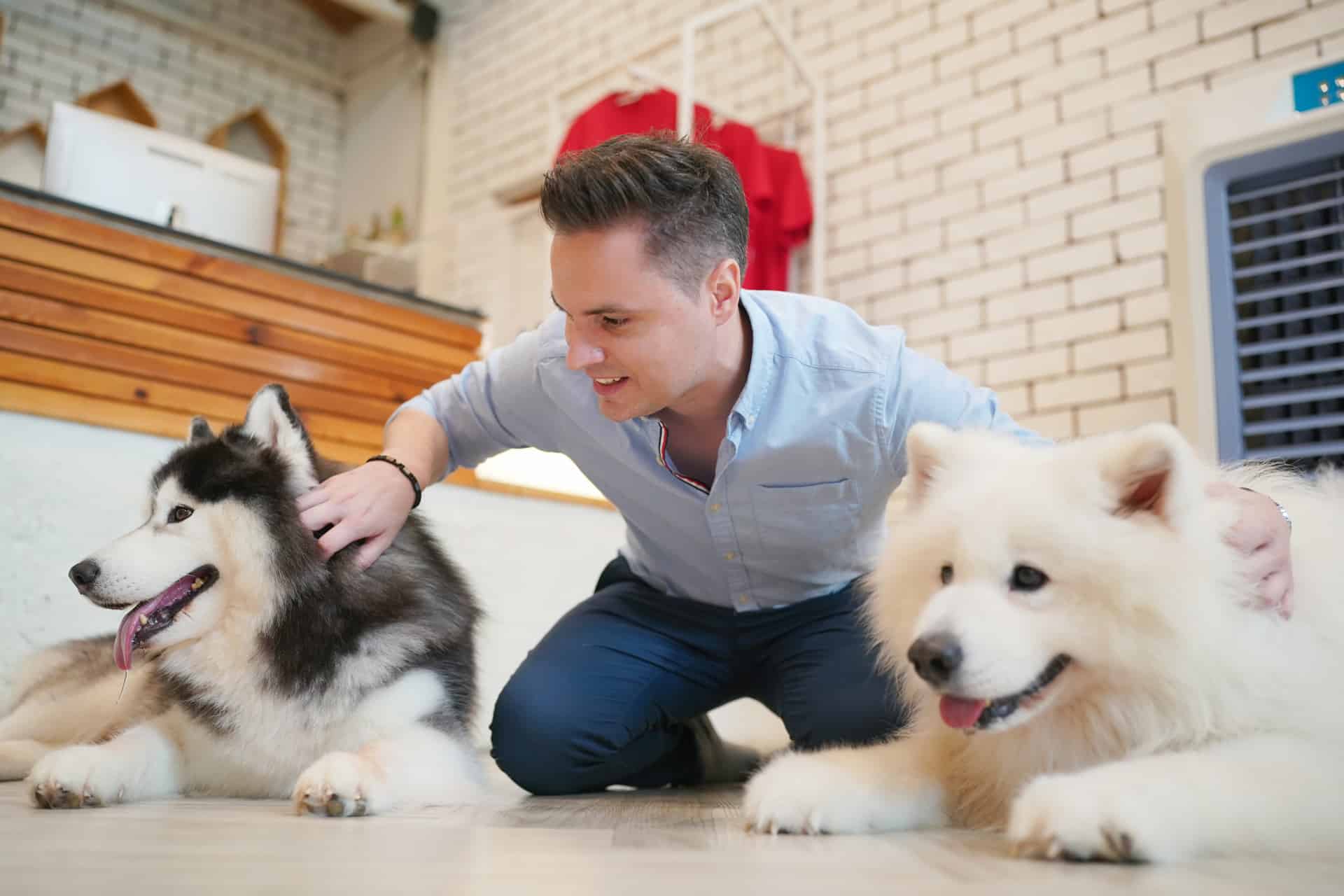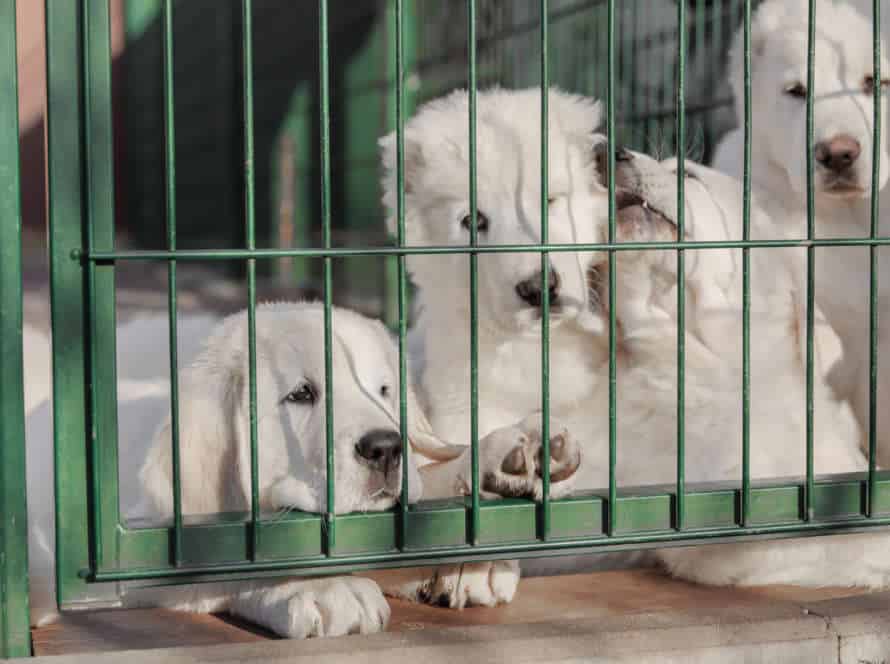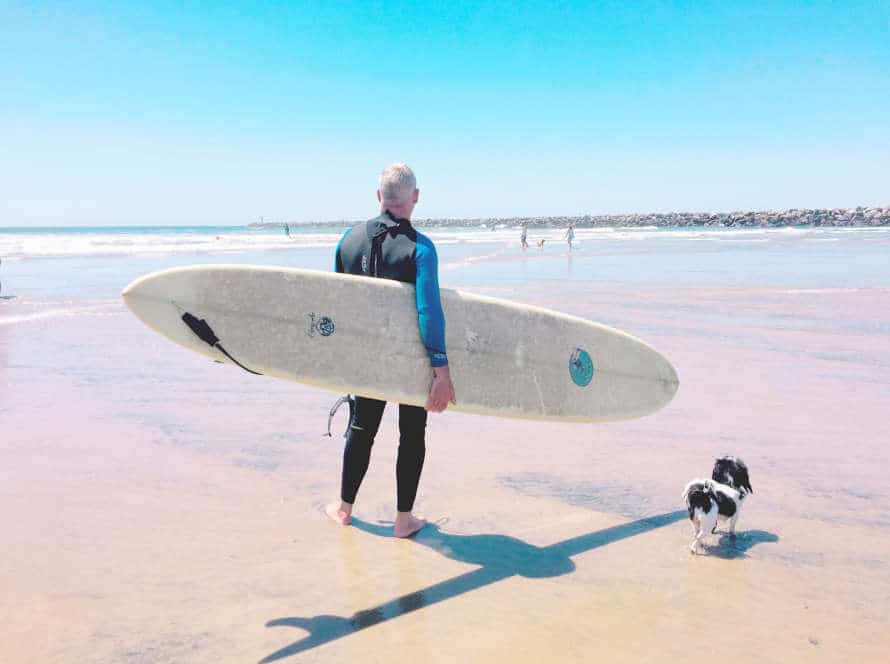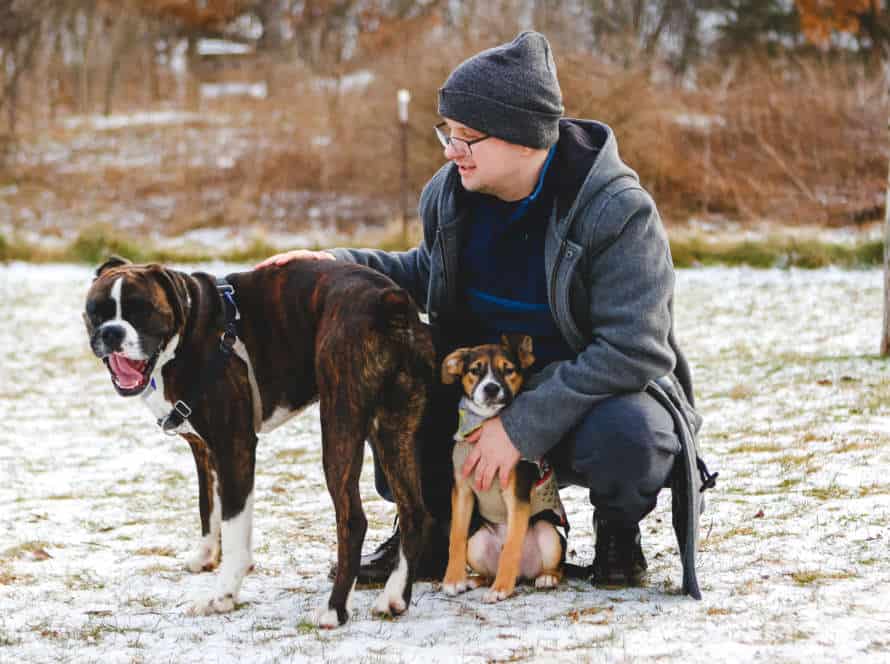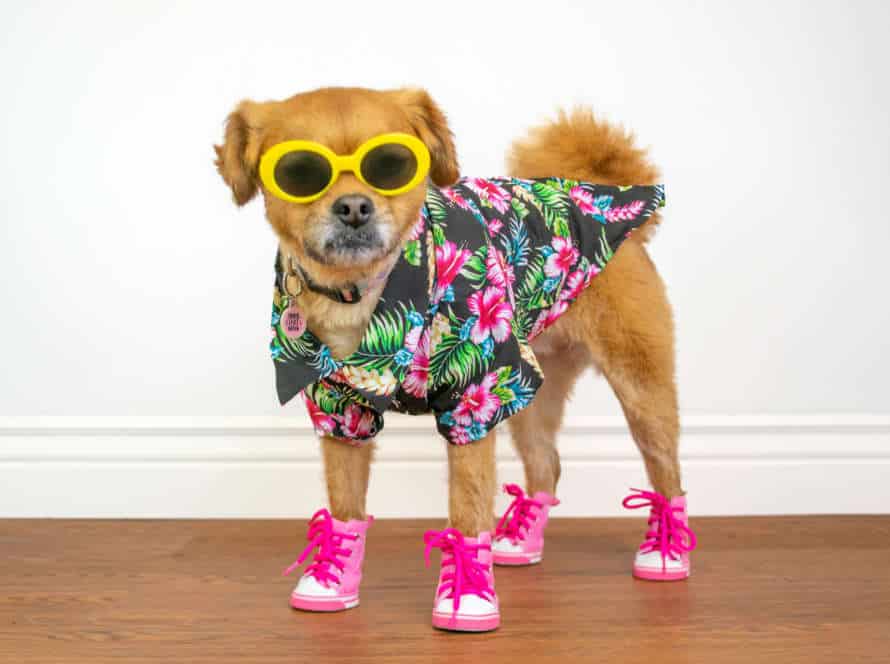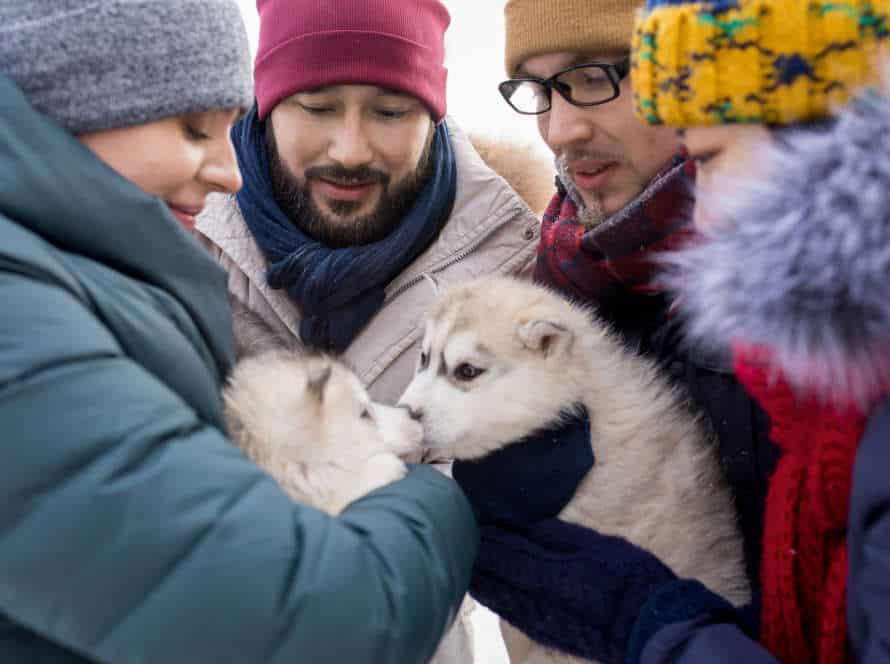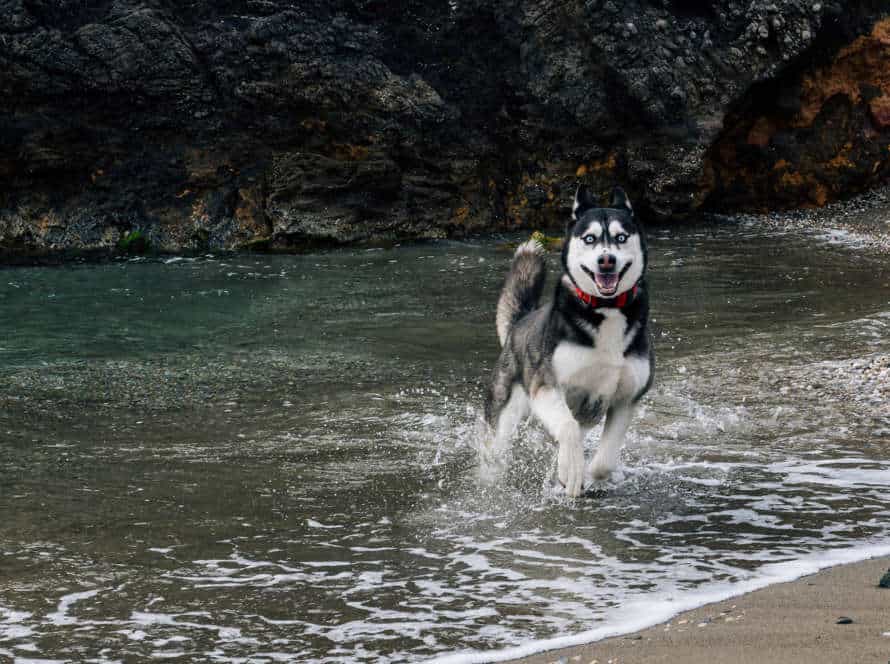It’s Never Too Late: Socializing Adult Dogs
Socializing an adult dog can be a great experience. Here are some tips:
- Introduce your pup slowly to new people and places; start with a low-stress environment and familiar people.
- Employ positive reinforcement like treats and praise to make them feel more confident.
- Go to obedience classes with your dog to build up their socialization.
- Help your pup get used to new people and animals by exposing them to different environments like parks, beaches, pet stores, etc.
- It’s never too late to socialize an adult dog, but it needs time and patience. With consistency and positive reinforcement, your dog can learn to love new experiences and socialize confidently.
Understanding the Importance of Socialization for Adult Dogs
Socializing your adult pup is paramount! Even if they are older. It trains them to recognize and connect with other canines and humans. This builds trust and boosts their self-belief. Also, it encourages positive relationships. Grasping the importance of socializing adult dogs is fundamental for owning a content and harmonious pup. Let’s examine why this is so essential.
The role of socialization in shaping a dog’s behavior
Socializing adult dogs is really important. It helps them develop positive relationships with people and other animals. And, it’s never too late to start even for rescue or adopted dogs with a traumatic past. Here’s why socializing adult dogs is so important:
- It builds confidence – Dogs with socialization feel more secure and are less likely to be anxious or aggressive.
- Reduces aggression – Dogs who have been socialized are less likely to be aggressive towards people or animals.
- Creates positive environment – Socializing your dog helps them understand their place in society and makes it easier for them to adjust to new situations.
- Provides mental and physical stimulation – Socialization activities provide essential mental and physical stimulation that keeps dogs healthy and happy.
If you’re having trouble socializing your adult dog, a professional dog trainer or animal behaviorist can help. They can create a plan tailored to your dog’s needs.
Differences between socializing a puppy vs. an adult dog
Socializing puppies and adult dogs require different approaches. Puppies are curious and open to learning. Whereas, adult dogs may need more patience and time to get used to new environments and people.
Puppy socialization should focus on introducing them to new people, places, and experiences in a safe, positive way. Adult dogs must have any fear or anxiety issues addressed first, before introducing them to new situations.
It’s important to recognize that modifying adult dog habits can take longer. However, consistent training and positive reinforcement can help any dog of any age develop better social skills and behaviors.
Pro tip: If you have an adult dog that needs socializing, go slow and always provide positive reinforcement. It’s never too late to socialize your dog and let them explore new experiences.
The potential risks of not socializing an adult dog
Socializing adult dogs is really important! Not doing so can cause risks. If not socialized, a dog may display fear, aggression, and anxiety towards other people and animals. They may become possessive and territorial, making it hard when introducing new people or environments. An unsocialized adult dog might have difficulty adapting to new situations, like a new home or unfamiliar people or animals.
It’s not too late to socialize your adult dog. Patience, consistency, and positive reinforcement are key. This will help your dog get used to new experiences. Socializing your adult dog can better their confidence, behavior, and quality of life.
Pro Tip: Get help from a professional trainer or behaviorist. This will guarantee the safety and well-being of your dog during the socialization process.
Common Challenges and Misconceptions of Socializing Adult Dogs
Many people wrongly believe that socializing adult dogs is impossible. Actually, socializing your grown-up pup is even more important than training a puppy. But, there are some challenges and misconceptions around the socializing process. To be prepared, let’s look at these issues in more detail.
Fear and anxiety associated with new experiences
Fear and anxiety are regular feelings experienced by adult dogs in new situations – especially when it comes to socializing. Many dog owners battle to socialize their adult dogs, and there are a lot of misconceptions about the process.
Common challenges can include:
- Fear of new people and dogs
- Excessive barking and growling
- Aggressive behavior
However, it’s never too late to socialize your adult dog. Here are some tips to help:
- Start slowly and be patient. Gradually introduce them to new people, dogs and situations in a controlled environment.
- Use positive reinforcement techniques such as treats and verbal praise to reward good behavior and help your dog connect new experiences to positive outcomes.
- If your dog’s fear and anxiety is severe, or you are having difficulty with the socialization process, seek professional help from a trainer or behaviorist.
- Don’t forget – socialization is an ongoing process for adult dogs and requires time and patience.
Aggression towards other dogs and people
Aggression towards other dogs and people is a frequent issue for pet owners. Even though there are many misapprehensions about adult dog socialization, it’s never too late to improve their behaviour and social abilities. Here are some tips to manage aggression:
- Gradual exposure: Introduce your pup to other dogs and people in a slow and controlled manner. Start with relaxed, non-threatening situations and progress as they become more comfortable.
- Positive reinforcement: Reward your dog with treats, compliments and attention when they behave well. This will encourage positive behaviours and discourage bad ones.
- Consistency: Make sure you are consistent with training and socialization. Dogs do well with routine and predictability.
Remember, socializing an adult dog takes time, consistency and a positive attitude. With the right approach, even the most aggressive dogs can learn to be appropriate around others.
Pro tip: If you are finding it difficult to control your dog’s aggression, seek help from a professional dog trainer or behaviorist.
Expectations vs. reality: time and effort required for adult dog socialization
Many underestimate the effort for socializing an adult dog, leading to misconceptions. Here’s what you need to know.
Misconception 1: It’s never too late.
Misconception 2: It takes time & patience.
Misconception 3: Socializing with people, objects & environments is important.
Misconception 4: Socialization is continuous.
Acknowledge these misconceptions. Plan socialization better and devote time & effort for a happy life for your furry friend.
Techniques for Socializing Adult Dogs
Adopting a grown pup can be quite the incentive! But, teaching them social skills can be a tricky job. It’s likely that their past or lack of socialization has caused them to be aggressive.
Fortunately, there are many ways to socialize adult dogs. Let’s explore the best techniques!
Gradual exposure to new people, animals, and surroundings
Gradually introducing your adult dog to new people, animals and environments is essential for socializing. It helps them grow comfortable with unfamiliar situations and form positive relationships with new experiences.
Here are some tips to remember when socializing your adult dog:
- Start with familiar people and settings, and slowly introduce them to new ones. Make sure to keep them calm and relaxed.
- Introduce your pup to new dogs one at a time, in neutral territory.
- Reward good behavior with treats and praise when meeting new people and animals.
- Be patient and go at your pup’s pace – don’t overwhelm them.
- Slow exposure and positive reinforcement make adult dogs more confident and adaptable to new situations.
Pro tip: If you’re having difficulty socializing your pup, seek help from a professional dog trainer or behaviorist.
Counter-conditioning and desensitization techniques
Counter-conditioning and desensitization are powerful methods for socializing adult dogs. They can lessen fears and anxieties of people, other dogs, or environmental factors that usually cause negative behavior.
Counter-conditioning means changing a pet’s response to a stimulus, from not liking it to liking it. For instance, by gradually introducing a scared dog to triggers, while also giving treats, it can learn to link them with good experiences, and so reduce their bad reaction.
Desensitization works by gradually exposing the dog to the stimulus, starting off with low intensity, and steadily increasing it. This helps the pup to become less sensitive to the stimulus that previously made them anxious.
Using both of these techniques together can help your adult dog be more relaxed and social. This will upgrade their life and wellbeing.
Positive reinforcement training for good behavior
Positive reinforcement training is an awesome way to help adult dogs learn good behavior. Here’s some techniques:
- Treat-based training: Give your pup a treat when they do something good. This’ll help your bond and show them that good behavior = reward.
- Clicker training: Use a clicker to mark it when they do something right and give them a treat. This’ll help them understand the clicker means a treat’s coming.
- Exposure therapy: Introduce them to new people, places, and other pups in a nice and safe environment. Increase the level of exposure gradually as they get more comfortable.
Patience and consistency are important for successful socialization. Positive reinforcement helps your pup learn good behavior and be healthy.
Special Considerations for Socializing Rescue Dogs
Adopting an adult dog can bring many great benefits! But, it can also come with unique challenges. Many adult dogs have experienced neglect, abuse, and abandonment. This can make them scared of people and other animals. When you’re helping a rescue dog to trust again, be patient and understanding. They may need extra special care with socializing.
Potential behaviors to look out for in rescue dogs
Rescue dogs may have certain behaviours from their past. Here are a few to watch for:
- Fearfulness – They could cower, hide, or show aggression due to past experiences.
- Separation anxiety – Experiencing abandonment could cause them to become anxious and destructive when left alone for long.
- Aggression towards strangers – Being unsocialized or having had bad experiences with people can lead to aggressive behaviours.
- Housetraining challenges – Never being housetrained or having picked up bad habits in the past home could make it hard for them.
It’s never too late to help rescue dogs! With patience, love, and positive reinforcement, they can become happy, confident, and well-adjusted pets.
Building trust and positive associations with new owners
Rescue dogs need trust and positivity with their owners to fit into their new lives. Here are some tips:
- Allow the pup to come to you first, not the other way around.
- Set up a routine for food, play and potty breaks.
- Treats and compliments work wonders for good behavior.
- No physical force or punishment, please.
- Introduce new people and places slowly, one at a time.
- Be persistent and loving – show them love and care.
- Socializing adult rescue dogs may take longer than puppies, but trust and positivity will last them a lifetime.
Incorporating socialization into rehabilitation plans
Socialization is key for rehabilitating rescue dogs, no matter their age or breed. Here are some tips to include it in your plan:
- Begin Slowly: Don’t rush it, allow the pup to feel relaxed before introducing them to something new.
- Use Positive Reinforcement: Reward good behavior with a treat, toy, or praise. This will help the dog connect socialization with positive experiences.
- Get Professional Help: Think about getting a professional dog trainer or animal behaviorist. They can make a plan tailored to your pup.
- Have Patience: It takes time and patience to socialize rescue dogs, so expect it to move slowly. But it’s never too late to give them a happy, healthy life.
Resources for Socializing Adult Dogs
Socializing adult dogs can be tough. But, it’s vital to help them become an accepted part of the family.
Fortunately, there’s lots of support for owners who’ve left socialization too late. This article will explain these resources and how to use them to get your adult dog familiar with different people and scenarios.
Professional dog trainers and behaviorists
Socializing adult pups is key for a content and healthy pet. Professional dog trainers and behaviorists can help pet owners accomplish this.
Trainers offer:
- Socialization classes- Dogs are exposed to new people, environments and pooches to strengthen socialization and decrease aggressive behavior.
- One-on-one training- Personalized training sessions let owners work on their pup’s behavioral troubles and change unwanted habits.
- Obedience training- Trainers educate dogs fundamental commands and home regulations to construct discipline and avoid behavioral troubles.
Dog behaviorists are experts in treating behavioral problems and offer:
- Finding the root cause of behavior issues- Aimed at knowing the dog’s behavior and past to build an effective treatment plan.
- Crafting a behavior modification program- Aims to modify aggressive, damaging, or anxious behavior.
- Building trust between the dog and the owner- Helps create a better relationship between the pup and the owner and can result in enhanced behavior.
Pro tip- Consult with a professional trainer or behaviorist as soon as signs of aggressive or destructive behavior appear, to ward off the issue from worsening.
Dog socialization classes and playgroups
Dog socialization classes and playgroups are ideal for adult dogs. Contrary to common thinking, adult dogs can still learn new skills and change their behaviors. Here are some advantages:
- Exposure to new sights, smells, and sounds can desensitize them to stressful stimuli.
- Interacting with other dogs can help them understand social cues and appropriate behavior.
- More exercise and playtime can help their physical condition and decrease stress/anxiety.
- And, these classes and playgroups can be fun and entertaining for you and your pup.
Pro tip: Choose a playgroup or class that suits your dog’s temperament and energy level for the best results.
DIY socialization techniques and resources
Socializing is essential for your pup’s development, and it’s never too late to start. Here are some techniques and resources to help you socialize your adult dog:
- Teach leash walking. This is key for outings and socializing.
- Take advantage of dog parks and other dog-friendly events. This will expose your pup to new experiences and interaction with other dogs.
- Enroll in obedience classes. Your dog will learn basic commands and have the chance to meet other dogs and people.
- Use treats and toys to reward positive behavior, new experiences, and interactions with other dogs and people.
- Get online resources. There are plenty of videos, articles, and forums to help you socialize your pup DIY style.
By using these techniques and resources, you’ll help your adult dog gain confidence and become more social.
Frequently Asked Questions
1. Can adult dogs learn to socialize?
Yes, adult dogs can learn to socialize. Dogs are naturally social creatures and can be taught to interact with other dogs and humans at any age.
2. Is it too late to socialize my adult dog?
No, it’s never too late to socialize your dog. While socializing puppies is easier, adult dogs can still be taught socialization skills through training and positive reinforcement.
3. What are some benefits of socializing adult dogs?
Socializing adult dogs can improve their behavior and increase their confidence. It can also reduce the likelihood of aggressive behavior and make them more comfortable around other dogs and people.
4. How can I socialize my adult dog?
You can socialize your adult dog by exposing them to new environments, people, and animals in a controlled and positive way. It’s important to start slowly and use positive reinforcement, such as treats and praise, to help your dog feel comfortable and successful.
5. Can I socialize my dog on my own, or should I seek professional help?
While you can socialize your dog on your own, it’s often beneficial to seek professional help from a dog trainer or behaviorist. They can provide guidance and support, as well as help address any specific issues or challenges.
6. How long does it take to socialize an adult dog?
The time it takes to socialize an adult dog can vary, depending on the dog’s behavior and temperament. Some dogs may take only a few weeks to become socialized, while others may need several months or more of consistent training and positive reinforcement.

